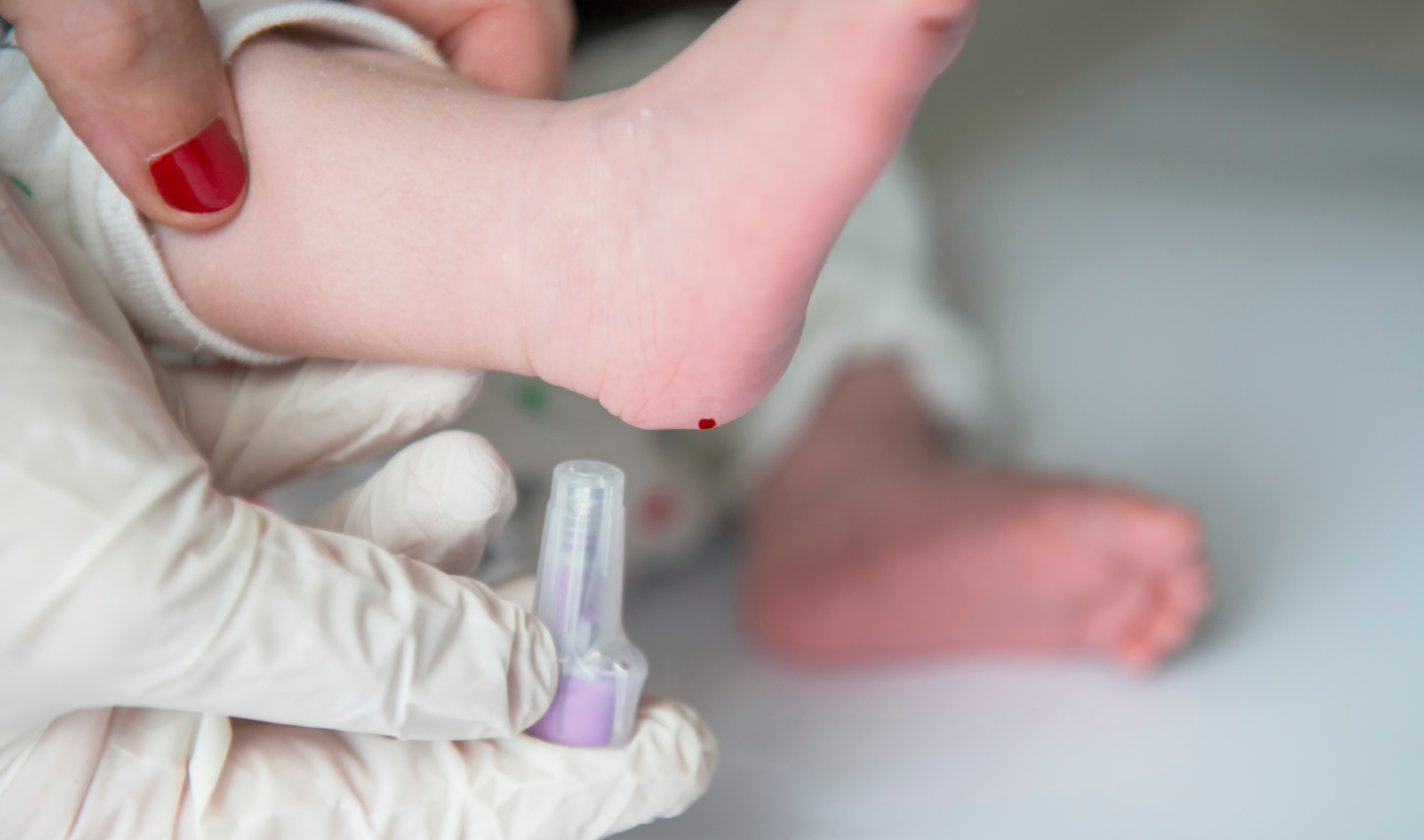For many families, the road to diagnosis is not straightforward. Sometimes it can take months, years or even decades to receive a formal diagnosis. Sometimes, a diagnosis won’t come due to the rarity of the disability or syndrome your child may have. Simply put, we only know what we know, so far.
The road to receiving a diagnosis for a child is paved with stories as diverse as the children, symptoms and diagnoses themselves. There are some common threads and pathways that are shared across experiences however and this article will take you through the steps you can take when you suspect something is not quite ‘right’ with your child; including the people to talk to, the professionals involved, and the different investigations that may happen.
For families who receive the life-changing news that their child has a disability, we know that understanding and addressing a child’s unique needs can be a complex and emotionally charged process, but there are frameworks out there to help. And while receiving an official diagnosis may be scary, it will help you navigate to the right supports and interventions to help your child reach their full potential.
Early diagnosis: discovering potential challenges before birth or shortly after
For some parents, the journey towards a diagnosis begins before their child is even born.
Advances in medical technology, such as prenatal testing have made it possible to detect certain conditions during pregnancy. Routine ultrasound scans can provide valuable information about a child’s in-utero development and detect any abnormalities or markers for genetic disorders. Additionally, genetic screenings, such as amniocentesis or chorionic villus sampling (CVS), can identify chromosomal abnormalities or genetic conditions.
Receiving a pre-birth diagnosis allows you to make informed decisions about medical interventions, early interventions, and therapies. It also offers the opportunity to connect with specialists and support networks before your child is born, ensuring a smoother transition and access to appropriate resources once the baby arrives.
A diagnosis during a pregnancy can be a hugely scary time. Connecting with support groups, counsellors, or other parents who have been in a similar situation can provide comfort, guidance, and an opportunity to process all the very valid emotions you’re likely to be experiencing.
Sometimes, complications or unusual behaviours are observed very shortly after birth, or something may be discovered through the routine newborn blood spot screening, also known as the heel prick test.

The process involves taking a small blood sample from your baby’s heel. Typically, the test is conducted when the baby is between 48 and 72 hours old, but it can be done earlier or later if necessary. A healthcare professional, usually a midwife or nurse, performs the procedure and the minute amount of blood collected will be sent away to be analysed by a laboratory.
The conditions screened for can vary slightly between different Australian states or territories, but they generally include metabolic, endocrine, and genetic disorders.
If your child is diagnosed with a genetic condition, it may be helpful to speak to a genetic counsellor – a health professional qualified in both counselling and genetics. As well as providing emotional support, they can help you to understand a condition and what causes it, how it is inherited (if it is), and what a diagnosis means for your child’s health and development, and for your family.
When issues arise later on
In contrast to the above, some children may not exhibit signs that something is different until weeks, months or even years have passed. As a parent or caregiver, you may notice delays in key milestones, speech and language development, motor skills, social interactions, or academic progress. Or perhaps you just have a feeling that something is not quite right.
Your intuition can be an immensely important factor in deciding to take action. As a parent, you are often the first to notice if something seems different about your child’s development; trust your instincts and pay attention to any concerns you have. Document your observations and make a list of specific behaviours or developmental milestones that you’re worried about. Identifying potential issues and seeking a professional evaluation are essential steps towards obtaining a diagnosis and if it’s just a gut feeling – then go with it!
The Diagnostic Process
The road to your child’s diagnosis will most likely involve a comprehensive evaluation process that combines observations, assessments, and medical examinations. Healthcare professionals including geneticists, paediatricians, psychologists, neurologists, and occupational therapists, among others, play vital roles in conducting thorough assessments to understand your child’s strengths, weaknesses, and unique needs. This multidisciplinary approach ensures a comprehensive evaluation and assists in making an accurate diagnosis.
In terms of the order things may happen:
First, schedule an appointment with your child’s GP to discuss your concerns. GPs are well-equipped to assess your child’s overall health and development. During the appointment, share your observations, provide a documented list of your concerns if you have one, and discuss any family medical history that may be relevant. The GP may conduct initial screenings and assessments or refer you to a specialist.
In some cases, diagnostic tests or screenings, such as cognitive or behavioural assessments, genetic tests, or imaging studies, may be recommended to gather additional information.
A referral to a developmental paediatrician is a common next step.
The role of a DEVELOPMENTAL PAEDIATRICIAN
A developmental paediatrician specialises in child development and behavioural issues. Their in- depth knowledge of typical and atypical patterns of child growth and development enables them to assess and diagnose a wide range of developmental disorders.
During an assessment of your child, they gather information from multiple sources, including interviews with parents/caregivers, observations of the child, and standardised tests/ questionnaires.
Developmental paediatricians are skilled in differentiating between various developmental disorders. They consider a child’s symptoms, behaviours, and developmental history to determine the most accurate diagnosis. They will often work as part of a multidisciplinary team, collaborating with other professionals such as psychologists, speech therapists, occupational therapists, and educational specialists. This collaboration allows for a comprehensive evaluation and ensures a holistic understanding of your child’s strengths and challenges. Input from various specialists helps in making a more accurate diagnosis and designing a tailored intervention plan.
Developmental paediatricians are well-connected within the healthcare system and can provide referrals to other specialists or services as needed. They can help you access appropriate therapies, early intervention programs, and support services. They often serve as a central point of coordination, ensuring that your child receives comprehensive care and that all relevant professionals are involved a treatment and support plan.
Communication is key
Open and honest communication with healthcare providers is essential throughout the diagnostic process. By maintaining open lines of communication and sharing concerns, parents can contribute to a more accurate diagnosis. You should ask questions, share observations, and actively participate in discussions about the diagnosis and its implications. Seeking a second opinion can also be valuable, providing you with different perspectives and ensuring thorough consideration of all possibilities.
Supporting you through the process
Here in Australia there are a number of different government agencies and initiatives to support you at different stages throughout the process of your child’s diagnosis. Some of the key ones are as follows:
MEDICARE
While it doesn’t directly diagnose disabilities, Medicare covers medical services that may be required during the diagnostic process. Medicare can help cover costs for visits to GPs, paediatricians, psychologists, and other healthcare professionals involved in the assessment and diagnosis of your child’s condition.
STATE AND TERRITORY DISABILITY SERVICES
Each state and territory has its own disability services department or agency. These organisations provide a range of disability services, including information, support, and referral to relevant local services. They can assist in navigating the local disability support system and connect you with specific programs and resources available in your area.
NATIONAL DISABILITY INSURANCE SCHEME (NDIS)
The NDIS is a national scheme that provides support and funding for individuals with disabilities. It aims to empower people with disabilities to achieve their goals and improve their overall quality of life. Once your child receives a diagnosis, you can apply for NDIS funding. If your child is eligible, they will receive a personalised plan that outlines the supports and services they need, such as therapy, equipment, and personal care. The NDIS can also connect you with local service providers and help coordinate your child’s support network.
EARLY CHILDHOOD APPROACH (ECA)
The Early Childhood Approach is a part of the NDIS originally for children aged 0-7, but now expanding to include children up to age 9. It focuses on early intervention to support children with developmental delays or disabilities. Children younger than 6 do not need a diagnosis to get support through the early childhood approach where there are concerns about their development. The ECA aims to provide timely and targeted support, delivered by The ECA partners work to maximise a child’s developmental potential during their critical early years. ECA partners with families to create individualised plans and connects them with appropriate early intervention services in their community.
Remember, although this is a scary time for your family, there are many others who have walked a not dissimilar path and emerged on the other side (look at us all here at Source Kids and Source Mama for example!) – a diagnosis is not the end of the road but rather the beginning of a new chapter filled with hope and possibilities.




